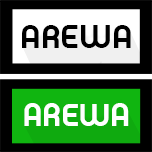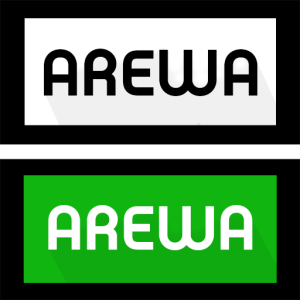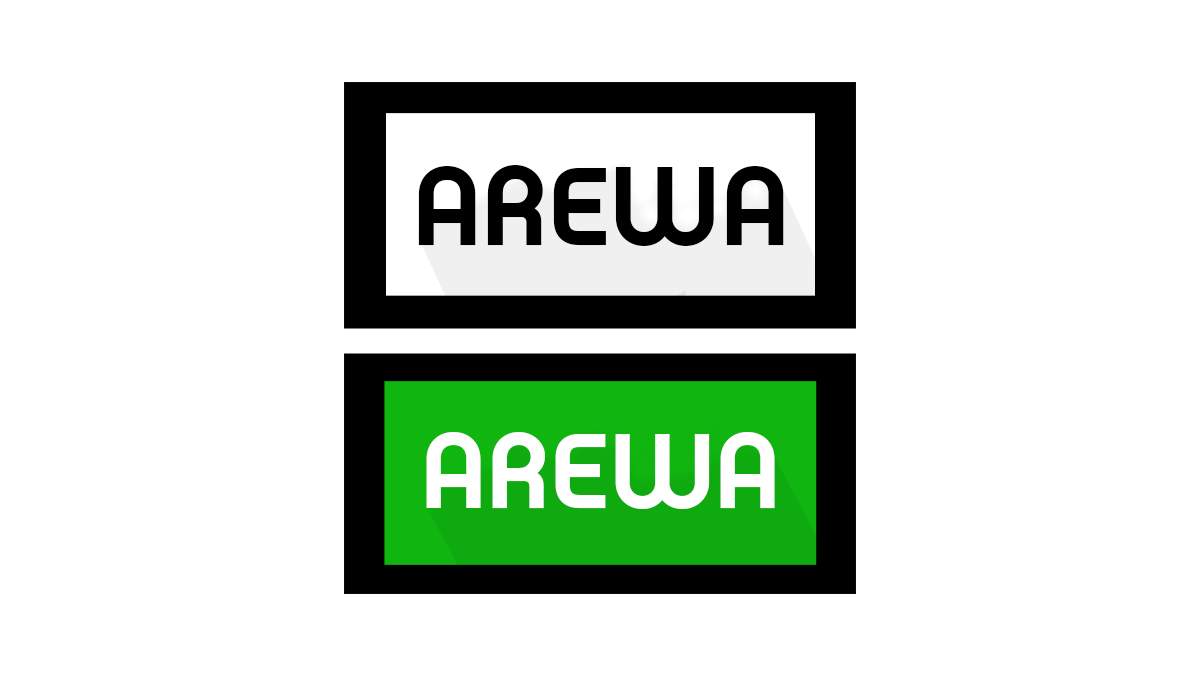Until recently in Nigeria the railway system was forgotten, this conscious decision comes at a price manifested within the sector in the form of crude rail strategy, local content incompetence, and blurred vision for multi-modal transportation network in the country. Current efforts on rail projects are under threat of sustainability unless bold steps are taken by both public and private stake holders.
The premise of this article is that the Nigeria of today, can be resurrected from its slumber with the right stimulant injected amidst social and economic activities that drive growth and development. History has it that the anchor behind successful transformation from developing to a developed economy has best been achieved through rails. Even though it may seem like the current administration is on the right path; through intensified railway projects, it will only amount to a colossal waste unless the model is feasible, robust and most importantly sustainable. To this end, the first agenda is to put forward a policy framework that builds confidence in achieving a multi-modal railway transportation network.
Unfortunately, it has been the opinion of some federal and state government officials that it was possible to attract investors to further build the Nigerian railways systems which is currently funded both financially and technically by the Chinese. What is more outrageous is that carefully looking at the way the railway projects are designed, suggests that the loans are not being used for the interest of the nation rather for modern day recolonization. How is it a priority of national interest (as opposed to Chinese interests) to channel resources for new standard gauge line when narrow gauge can be resuscitated by a fraction of the cost baffles me.
Fortunately, the policy makers now realise that the current model of railway project is not lucrative for the private sector since the pull-out from General Electric. For the same reason of inconclusive risk assessment reported, other private investors have confidentially expressed disinterest in getting involved in a project that can take almost a decade to partially understand the financial, management, design, technical and resource risks involved.
If true progressives, with enough humility to pave way for superior purpose and intellect are in the helm of affairs, I charge them to accept the guidance of the first ever consortium of railway engineers, consultants, researchers and contractors. This consortium (with 70% percent local content guaranteed) is emerging as a sacrifice of personal ambition and diaspora career to once and for all put an end to the importation of technical resource persons in the field of railways. It is the much needed bold step from private sector, that we render the services of this consortium to compete out the Chinese from Nigerian railway projects. We are confident, the government of Nigeria and its citizens can join us on the vision of NIGERIA ON RAILS, TRACK TO PROSPERTIY.
It is the core belief of this consortium, that the following issues and discussions are key to opening up the railway sector to organic growth and development including private sector participation.
POLICY:
In advanced railway systems the common practice is to charge track access fees to private investors that run and operate the network built by governments. Nigeria is bound to face problems with the current policy framework in which after rail infrastructure is achieved, government wants to further sustain its leading role in other elements such as; station design, signalling, communications, operations (running locomotives and carriages) and maintenance. Private investors will never be confident to partake in railway projects that are overcrowded by the public sector, nor that which is dominated by interest based loans. A better alternative for an attractive and sustainable railway system in Nigeria is for the government to buckle up and be ready to fund the track infrastructure aspects, thus exhibiting enough commitment, seriousness, and less risk for the private investor. In addition, it should also be very clear to the international community that the public sector in Nigeria is only interested in regulating licensing, track access agreement, review of access charges and enforcement of health and safety through effective policies.
STRATEGY:
At the moment the emphasis within the rail industry is very often focussed on passenger needs. But we must not lose sight of the very important role that freight will play in our railways. Passenger trains are subsidies for transporting people, while freight trains energise the economy. Passenger services will require a strategy that ensure ease of patronage (e.g. e-ticketing, live tracking, advance booking, journey planner etc.) accessibility, multi-modality, ergonomic nature of stations, comfort and safety. It is envisaged that a long term rail strategy will benefit the Nigerian economy estimated to the tune of $1.5 billion per year in productivity gains for Nigerian businesses, reduced road congestion (e.g. 1 freight train removes almost 100 lorries from the road) and environmental benefits (e.g. each tonne transported by freight train will reduce 82% of carbon emission).
The dynamics of the rail freight market in Nigeria is pretty straight forward, this is because the complexities associated with traditional bulk rail freight commodities suchas farm produce and by-products of crude remain unchallenged by patterns of consumption. However, a new model resilient to competing innovations like the rise of internet shopping and next-day deliveries necessitates a hybrid operating model of rail freight services. The rail freight industry will need to innovate and respond to these challenges using advanced logistics and machine learning tools in planning.
To support long term strategy, we have identified four priority areas where further action by Government, industry and others could empower railway system to achieve its potential:
a. Innovation and skills
There is a need for continuous innovation (e.g. moving platforms in place of remotely located stations and predictive maintenance on functional network) to be developed and deployed to such an industry typically characterised by high fixed costs over long timescales. This level of innovation is only possible if high level of skills is used to tackle the flexibly to changing markets of rail operations. The introduction of railway engineering curriculum in the nations universities and polytechnics is a welcome development. It is worthy to encourage establishment of research centres that will dispense existing and new knowledge in railways.
b. Rail network and capacity
The rail network must be carefully designed to meet functionality and efficiency expectations; the current model can be improved by better integration with city centres as opposed to city outskirts. The track layout should link existing and future airports, seaport, dry ports and bus terminals. Better timetabling and planning will improve capacity and also encourage synchronisation between different transportation modes.
c. Track access charging
Track access charges as opposed to operation by the government is a more sustainable future for the rail industry. This approach reduces the burden on public resources and encourages competition towards efficiency.
d. Creating awareness.
There is simply no harm done in more publicity and awareness. For such an industry that has been forgotten over the years, it is very important that all stake holders and the general public is kept in the loop and involved with all advances.
ECONOMICS:
The economic argument in this article is quite simple, a local content consortium with proven track record of competency and quality is cheaper than an international contractor. The numbers in our pre-feasibility study suggest we can deliver as fast, but also one sixth cheaper and with more than 70% local content at all levels of project execution. The economic impact is that Nigeria will have a Nigerian railway built for Nigeria by Nigerians, this is practically more sustainable than a Chinese railway Built for Nigeria by Chinese.
ENGINEERING:
Instead of channelling borrowed money to build new a standard gauge network, the current narrow gauge can be resuscitated to serve as North-South mainline with new standard gauge extensions to other parts of the country. This will amount to a fishbone network linking the nation. If private train operators can invest in a variable gauge train, this fishbone network can run both passenger and freight train on standard and narrow gauge track. Otherwise, the government can strategically introduce 60Kg S&C, including star crossing will guarantee the mixed mode traffic (high speed passenger and low speed freight) on the proposed fishbone network. From an engineering perspective it is cheaper to operate a freight train, because most light frame bogies can accommodate the more readily available cheaper primary and secondary suspension. In other words, ride comfort is not a priority compared to passenger train, however the contact forces and energy dissipated at the wheel rail interface in both cases requires predictive maintenance strategy in place. To this end the cheap (50% reduction in maintenance cost), 100% safe (no on site engineer required) and flexible (other parameters like wagon identification, carriage misalignment, missing bolts and components etc. can also be inspected) approach to rail condition monitoring using image processing is favourable for the Nigeria railway system. Virtual instrumentation should also be deployed to save cost of maintenance equipment.
There is a need to produce a Nigerian railway “Technical or Standards manual” which provides the technical details related to all elements within the Nigerian railway system. This manual not only offers transparency and ease of development works within the industry, it also allows for R&D into custom made improvements that can be implemented within the railway system.
The future of Nigeria is stuck on a thin line of divide between progression and regression, critical infrastructure has never been this elevated in the history of the nation. Segregated development of these key infrastructure (Agriculture, Power, Housing, Rail, Road, Communications, Science and technology) must stop immediately. What is paramount for the nation to click into functionality is the synergy and harmony between what is obtainable in our economy, industry, academia and polity.
I am hopeful, Nigeria on rails, will mean the cheapest form of transporting the largest amount of people, goods and services. It is safer and inclusive for the society. I see an opportunity for a prosperous nation if only we lock in, the value chain from our daily activities. Nigeria on rails, is not just a transportation system, it is more than a business, it’s a field of new knowledge in the nation and a way of life that will kick start the prosperity.
God Bless the Federal Republic of Nigeria!
Dr Bello Sambo CEng, MIAVSD, MIET, FIMC, MAYF, MIMechE is a Nigerian railway researcher in the United Kingdom and can be reached via: bll_smb@yahoo.com.


